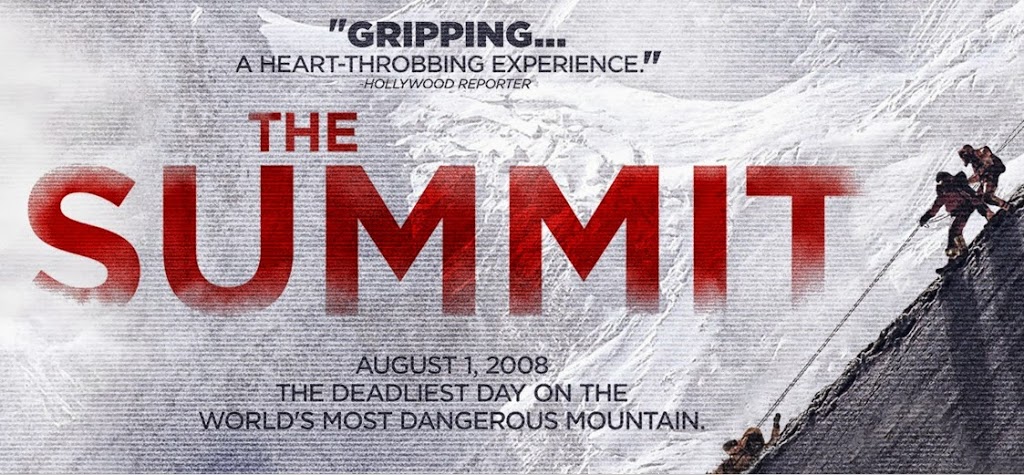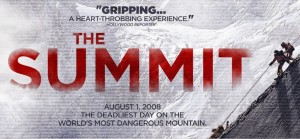Active Mind, Creative Spirit
Tragedy on K2 EK POV

Occasionally my job sends me on fun little non-climbing adventures that are as exciting as my own climbing adventures (almost). Tonight I am going to see an advance screening of The Summit which is the story of K2’s deadliest climbing day. It happened for real in 2008. This particular adventure has a special place in my heart.
Early last year at my bi-annual trade conference, I met one of the surviving climbers of this tragedy, Chhiring Dorje Sherpa, at a book signing in Salt Lake City. The book was written by Peter Zuckerman and Amanda Padoan, and I also met Amanda at the signing. She decided to write the story after her climbing partner, Karim, died in this tragedy. She wanted to research how he had died and write about it since in all the accounts she heard, there was no mention of him. So she roped in her cousin from Portland, OR, Peter Zuckerman to do the writing, since she was mostly a climber/adventurer and he was a reporter for the Oregonian. Amanda connected me with Peter after the book signing and he and I became fast friends. I’ve interviewed him and reviewed their book, which was my favorite non-fiction read of 2012.
But meeting Chirring Dorje was an amazing moment. I was still puffed up from my first visit to Nepal when I met him in the book signing line, so he and I went back and forth with Sherpas we both knew, short stories, the stuff I was accustomed to batting around with the people I know in the Sherpa culture. He spent several extra minutes with me, enjoying the exchange, even though the signing line was long. When he signed my copy of Peter and Amanda’s book, he went to the trouble to tell me the meaning that his name carried. The script that I watched his knotty, stubby hand write is the most treasured and beautiful thing about my copy of this story. God, I wish I had written his exact words down next to his name (I have an aversion to writing in books). All I can recover now is that Chirring means long life, and Dorje means lightning bolt. When ‘virtue names’ are combined, the meaning shifts some, but I remember him saying something like “This is how you write my name, it means ‘blessed by the enlightenment of long life.'” And only after reading the book and knowing the full story does that tug on me with full effect.
As to the story of the tragedy itself, it’s a grisly tale of people dying on a mountain. Going into the movie tonight will most likely remind me of walking into the theater to see Titanic. Chris said to me, “So you know, this isn’t a happy ending…” But it’s not the death and tragedy of the story that I cling to, it’s the culture of the whole thing: What drives people to do this insane thing – to risk their lives to stand on a hunk of rock and snow? And how are those people different from the rest of us? How does their culture and their desire and their drive push them to do these things that they may or may not survive?
So I go in tonight knowing I won’t get the juicy backstory that exists in Peter’s book. He relentlessly researched Chirring and Pasang’s lives and chronicled the early years and culture of their upbringing. And that added so much to the story. As he says, “When your life hangs from a rope, it’s important to know who tied it.” But I’ll still love the tragic story and seeing the new perspective of its telling, and know that I shook hands with the real guy up there who tied the knots and hung from a rope and survived.
In case you want a quick synopsis of the tragedy, Outside Mag ran it down 2 months after it happened.
